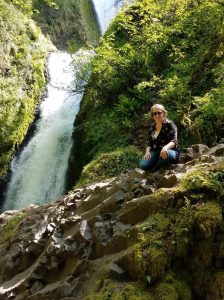~This post courtesy Polina Ilieva, Head of Archives and Special Collections, University of California, San Francisco.
Deadline for submissions extended to June 17
Memory Lives On: Documenting the HIV/AIDS Epidemic is an interdisciplinary symposium exploring and reflecting on topics related to archives and the practice of documenting the stories of HIV/AIDS.
The task of documenting the history of HIV/AIDS and thinking about the present and future of the epidemic is daunting. The enormity and complexity of the stories and perspectives on the disease, which has affected so many millions of patients and families around the world, present significant challenges that demand continual reexamination. Questions of “what do we collect and from where” and “whose stories do we know best.” The ways in which we handle documentary evidence and produce knowledge from that evidence has profound effects on a huge range of social, economic and health outcomes. In examining and reflecting on our knowledge of the history of the HIV/AIDS epidemic and its future, we hope to improve our understanding of the true effects of the disease, and what it can teach us about future epidemics.
The program committee invites submissions for presentations addressing the HIV/AIDS epidemic from the wide-ranging perspectives of historians, archivists and librarians, artists, journalists, activists and community groups, scientific researchers, health care providers, and people living with HIV. We invite proposals from individuals with diverse experience and expertise on the HIV/AIDS epidemic in scholarship, research and advocacy. Proposals will be considered in a variety of forms including paper presentations, panel discussions and posters.
The Symposium will take place in Byers Auditorium in Genentech Hall at the UCSF Mission Bay Campus in San Francisco, October 4th and 5th 2019. The program will be an afternoon session and evening reception the first day, followed by a full day of presentations the second.
The Program Committee has identified the following themes to consider when developing your proposal, though we encourage creativity and experimentation in exploring themes, partnerships, and narrative ideas.
- Documenting the epidemic: Gaps, silences and unheard voices
- Creating an interdisciplinary narrative of an epidemic
- Silent no more: Community, caretaker and patient stories
- The San Francisco Bay Area’s Response to the AIDS Epidemic
- Biomedical story: From mystery disease to cure
- From local to global: Learning from AIDS to address future epidemics
The Program Committee welcomes proposals for individual papers, panel discussion and posters. Individual papers with a similar focus will be assembled into a single session by the program committee. Usually 3-4 papers are included in a session.
To allow adequate time for questions and discussion, panels should be limited to four participants in addition to a chair/facilitator.
Please include the following in your complete proposal
- Session title if submitting a full panel proposal (of no more than 20 words)
- Session abstract if submitting a full panel proposal (up to 500 words)
- Short session abstract for the program if submitting a full panel proposal (up to 50 words)
- Paper or poster or presentation titles (if any), and names of corresponding presenters
- Biographical paragraph for each presenter
- E-mail address for each participant
- Affiliation, city, state, and country for each participant
- Social media handles or web addresses for each participant (optional)
- Audiovisual needs
- Special accommodation needs
The deadline for submissions is June 17. We will notify presenters if their proposal has been accepted by July 22.
Memory Lives On Program Committee
Monica Green, Ph.D., Professor of History, Arizona State University
Victoria Harden, Ph.D., Director (retired) of the Office of NIH History
Richard McKay, DPhil, Wellcome Trust Research Fellow, University of Cambridge
Barbara A. Koenig, Professor of Medical Anthropology & Bioethics in the Department of Social & Behavioral Sciences, Institute for Health & Aging and Head of UCSF Bioethics Program
Jay Levy, MD, Professor UCSF School of Medicine
Eric Jost, Digital Marketing Manager, SF AIDS Foundation
Jon Cohen, Staff writer for Science Magazine
Mark Harrington, Executive Director, Treatment Action Group
William Schupbach, Wellcome Library
Jason Baumann, Susan and Douglas Dillon Assistant Director for Collection Development and Coordinator of Humanities and LGBT Collections, NYPL
Polina Ilieva, Head of Archives & Special Collections, UCSF Library
Submit a proposal: http://tiny.ucsf.edu/A2nohy
For any inquiries contact David Krah david.krah@ucsf.edu
More information about the UCSF AIDS History Project:https://www.library.ucsf.edu/archives/aids/






